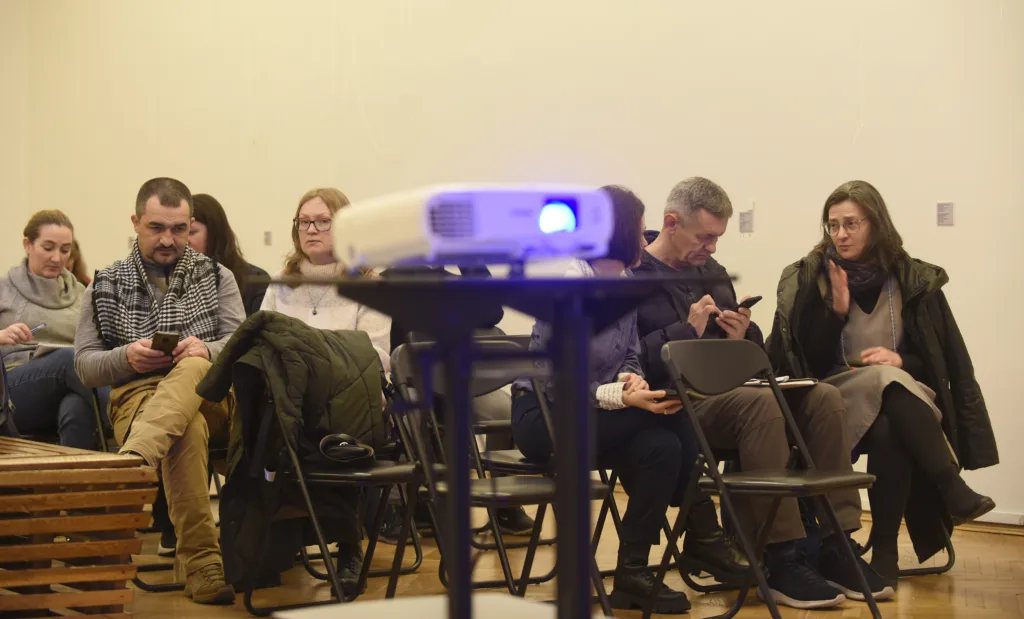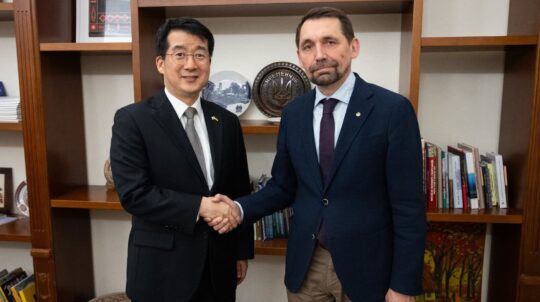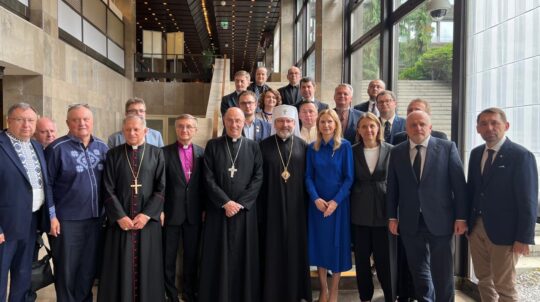On February 14, at the National Art Museum, a meeting took place involving the Deputy Minister of Culture and Information Policy for Digital Development, Digital Transformation, and Digitization, Anastasia Bondar, and the Head of UNESCO Office in Ukraine, Chiara Dezzi Bardeschi. The meeting was attended by employees of Kyiv museums, during which they presented and discussed the project of the electronic register of the State part of the museum fund of Ukraine.
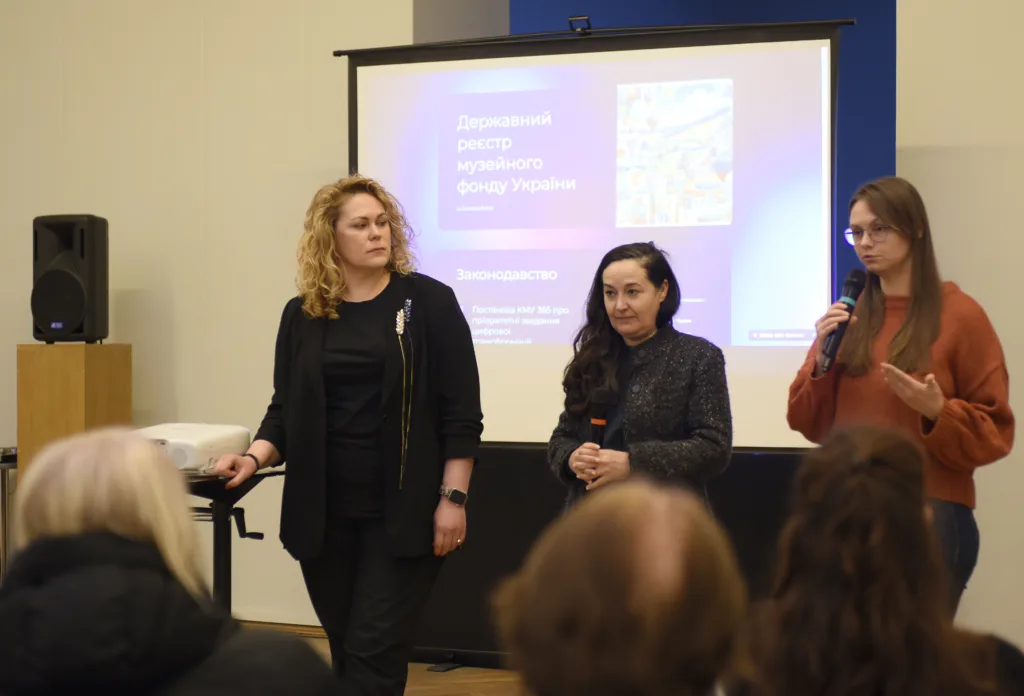
“We gathered to share our progress in developing the electronic registry of the museum fund, to discuss the stages and status of development, and to talk about the system’s functionality. It’s important to consider all possible nuances before implementing it,” said Anastasia Bondar.
She noted that there are more than 12 million objects in museum collections, and all of them are intended to be included in the registry. Currently, data on state-owned museum objects are not available in a unified and centralized digital format. That’s why the Ministry aims to create a centralized system with a single interface, transparent processes, and public access to information.
“For effective state management, it’s essential to have a clear understanding of what assets the state owns, where they are located, their condition, and how they are being moved. Any decisions should be based on data, statistics, and analytics,” noted the Deputy Minister.
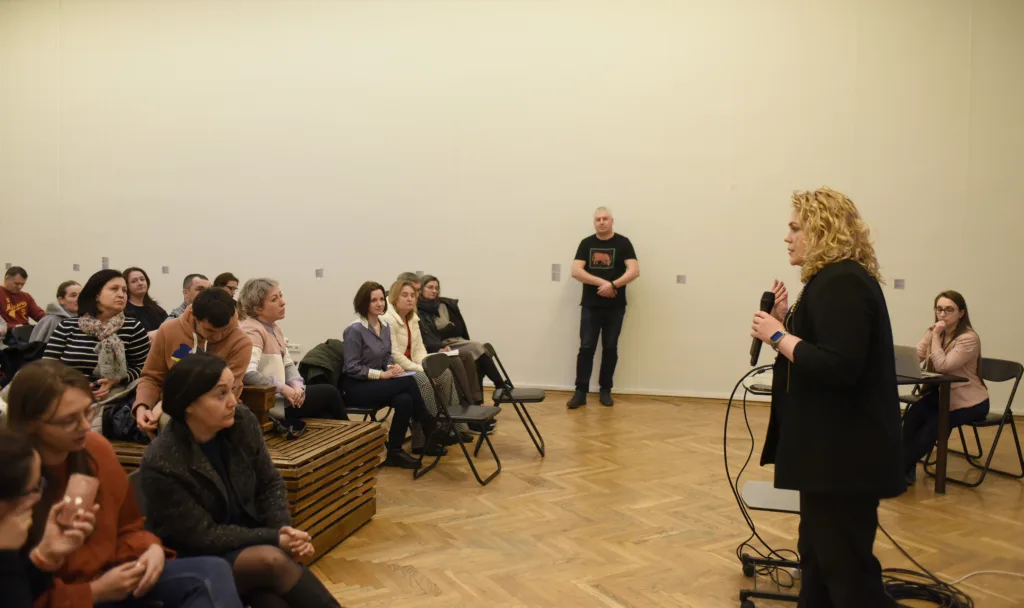
During the event, experts showcased the functionality of the first module of the electronic system that has already been developed. At the same time, it was mentioned that work is ongoing on the module for automating the process of object movement and export, as well as on transferring information from various existing systems and documents.
Chiara Bardeschi added that as a part of the collaboration with the Ministry, UNESCO will provide technical equipment, including all necessary servers, for the continuous and uninterrupted operation of the electronic systems.
“Since the beginning of the full-scale invasion, active cooperation and support for Ukraine have been ongoing. We have signed a relevant document with the Ministry of Culture and Information Policy (MCIP), outlining six main priorities of our cooperation. One of them is working on the digitalization of Ukraine’s cultural heritage. This area is extremely important, as we are concerned about the maximum preservation of heritage. Digitalization and the creation of nationwide electronic registers help to preserve and organize a maximum amount of information at the state level,” said the UNESCO representative.
